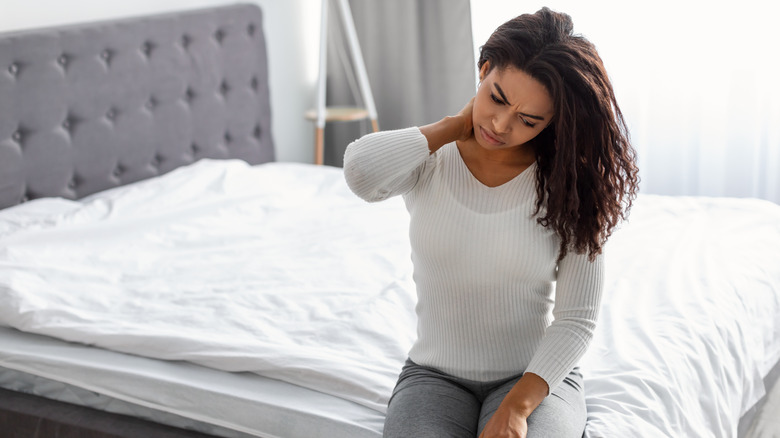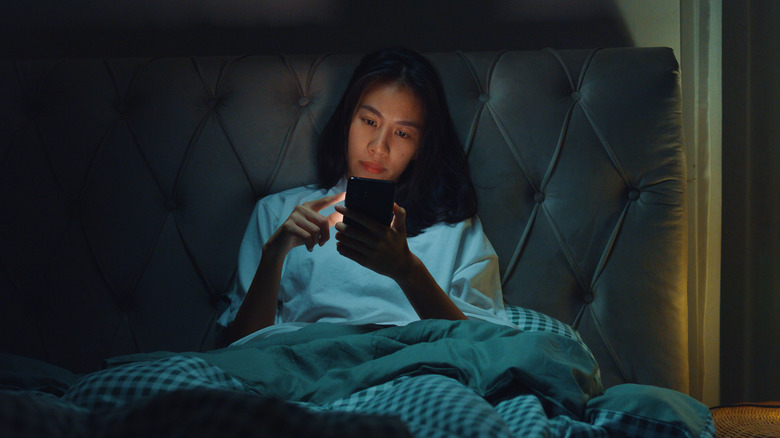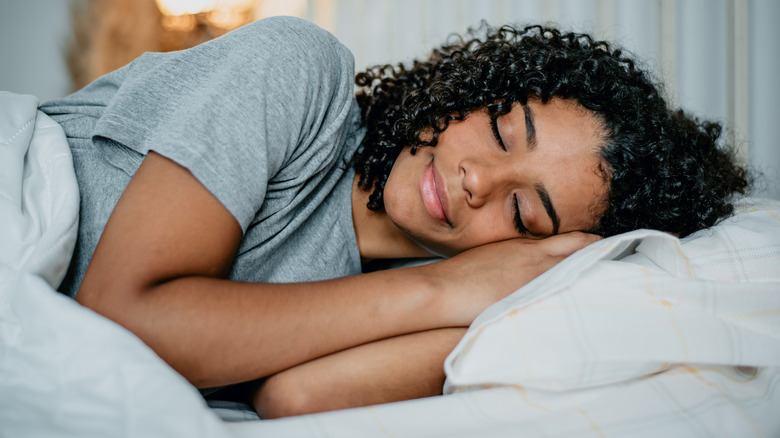Avoid Post-Nap Grumpiness With These Tips
Imagine if pilots were always sleep deprived. It doesn't happen because a few government agencies — NASA and the Federal Aviation Administration in particular — recognize the emotional and cognitive advantages of daytime naps, and provide their employees with napping pods. But except for a sprinkling of American companies (Google, Ben & Jerry's, Nike, HuffPost, and a few others), there is still a powerful stigma against napping during work hours.
Yet the benefits of a 15-minute power nap are well-known to scientists, so we say if you can grab one, do it (even if it's a covert nap in your car). It'll boost your productivity, alertness, creativity, and logic, and also help regulate emotions and relieve stress. In Oxford University Press's journal article, "Challenging the stigma of workplace napping," the authors pose the crucial question, "What is the cost of working fatigued?"
Because the benefits are so pronounced, we wondered exactly what's happening when we become a complete nightmare of post-nap grumpiness. There are a few reasons, and our daily sleep hygiene is an important one. And if you haven't heard of revenge bedtime procrastination, it can signal issues in your life that also undermine your sleep.
Causes of nap-related irritability
If you're waking up from a nap — whether you stole it during your work day, grabbed one on vacation, or over the weekend — and feel groggy, drunk (with no alcohol in your system), or just plain mad, it's because you probably slept too long. Timing your naps is essential.
Dr. Rafael Pelayo, clinical professor at Stanford University's Sleep Medicine Division, pointed out to The Washington Post that the best napping length is between 20 and 40 minutes so that it doesn't tip over into a deep nighttime sleep pattern.
Other experts such as Dawn Dore-Stites, an assistant professor in the Department of Pediatrics and Sleep Disorder Center at Michigan Medicine strongly recommend limiting it to no more than 20 minutes. If your nap is longer than that, then you're in danger of interrupting a deep sleep that your body will resist. This disoriented, cognitively impaired state is called "sleep inertia," and it can last from 15 minutes to a few hours. Researchers aren't yet totally sure why it happens, but it's thought to be the body's attempt at ensuring adequate sleep despite a sudden awakening.
Remedies to improve your napping experience
To limit yourself to a 20-minute max, use an alarm. Depending on your unique situation, it's possible that even a short nap can result in grogginess, so give yourself enough time to fully awaken, especially if you'll need to drive. Keep your scheduling closer to post-lunch but not too close to your actual bedtime, which may make it more difficult to get a full night's sleep.
Dr. Pelayo asks his patients when the disorientation and "sleep drunkenness" occurs, whether it's after a nap, or upon awakening in the morning. If it's both, chances are good that they're sleep deprived. Cultivating excellent sleep hygiene, i.e., maintaining a regular bedtime every night including weekends, getting seven to nine hours' sleep, avoiding alcohol and caffeine before bed, and shutting down screens 30 minutes beforehand, may diminish the need for regular napping.
To reduce a befuddled state, when your nap alarm rings get out of bed and resist the urge to linger — that can amplify that dazed feeling. Ensure you fully wake up by splashing cold water on your face, taking a walk around the block, or moving to music you like. Our takeaway: scientific evidence defies America's napping stigma. Consider napping as one small way to reclaim control when work is eroding your mental health.


